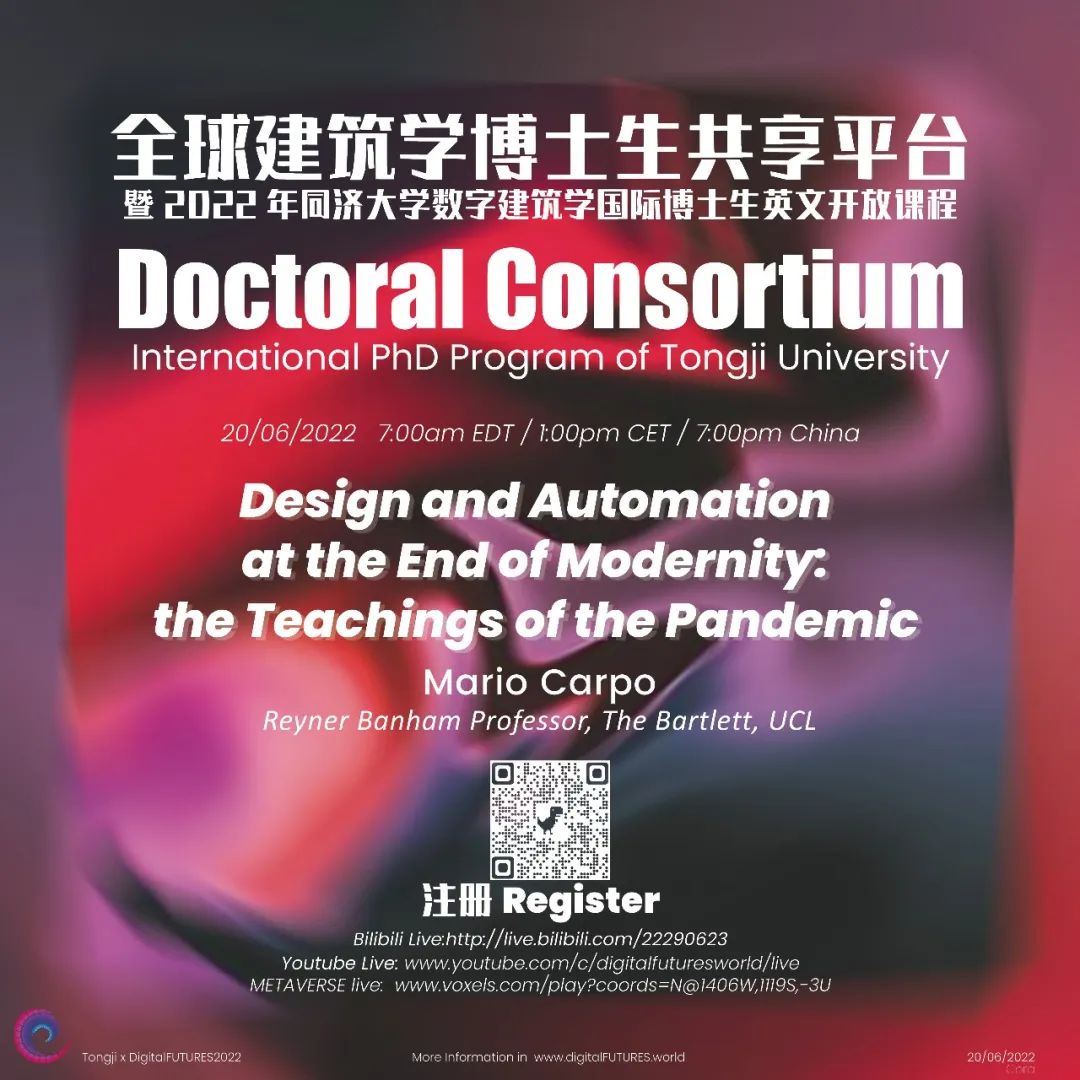

We have long known that digital mass-customization is cheaper, faster, smarter, and more environmentally sustainable than the mechanical mass-production of standardized items of mass-consumption; we have long known that the electronic transmission of information is cheaper, faster, smarter, and more environmentally sustainable than the mechanical transportation of people and goods. When the pandemic obliged us to briefly suspend the modern, anthropocenic mode of production, we did--because we could. The pandemic has shown that an alternative to the doomed techno-social model of late industrial modernity today exists, and it is viable. Should we learn from the catastrophe that just struck--and at the time of writing, is still unfolding--or pretend that the pandemic never happened, restart doing everything as we used to, and wait for the environmental catastrophe that is sure to follow?
Mario Carpo
Reyner Banham Professor of Architectural History and Theory, the Bartlett, University College London; Professor of Architectural Theory, Die Angewandte (University of Applied Arts), Vienna
Carpo's research and publications focus on the relationship among architectural theory, cultural history, and the history of media and information technology. His Architecture in the Age of Printing (2001) has been translated into several languages. His most recent books are The Second Digital Turn: Design Beyond Intelligence (2017), The Alphabet and the Algorithm, a history of digital design theory (2011); and The Digital Turn in Architecture, 1992-2012, an AD Reader.
 ABOUT US
ABOUT US





